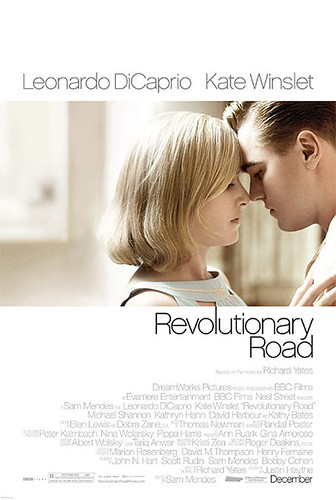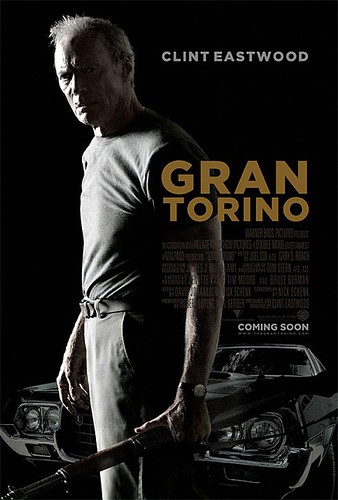 Over a decade after starring in “Titanic,” Leonard DiCaprio and Kate Winslet are reuniting in “Revolutionary Road.” But those expecting another sweeping tragic love story are in for a rude awakening. This time the sinking ship is the relationship itself and, to reference another disaster, it is as explosive as the Hindenburg.
Over a decade after starring in “Titanic,” Leonard DiCaprio and Kate Winslet are reuniting in “Revolutionary Road.” But those expecting another sweeping tragic love story are in for a rude awakening. This time the sinking ship is the relationship itself and, to reference another disaster, it is as explosive as the Hindenburg.“Revolutionary Road” has more in common with director Sam Mendes’ “American Beauty” than with “Titanic.” For the many, myself included, that found the romance in “Titanic” shallow at best and nauseating at worst, this will be a relief. But be forewarned: This is a devastating film that is not easy to watch.
As in “American Beauty,” Mendes has created a scathing critique of suburbia and the American dream. Mendes seems fascinated with pulling away the veneer of suburbia to reveal the truth behind the idyllic façade.
“American Beauty” had a sardonic wit and sense of hope that dulled some of the film’s more stinging moments, but Mendes offers no such relief in “Revolutionary Road.” At one point my mouth hung slack as my lower lip quivered. By the film’s concluding scenes, I had pulled my legs up into my seat and I was hugging them.
The film centers on the Wheelers, a seemingly perfect 1950s suburban married couple. Frank Wheeler (DiCaprio) commutes into the city to work at an ad agency like so many other shapeless drones while his wife April (Winslet) tends to their two kids.
There is a brief prologue of the couple’s first encounter, but the film immediately follows this with the couple, years later, having an argument, the likes of which are usually the climax of most dramas rather than the beginning. The details of the dispute, like so many that will appear in the film, don't really matter because the fight represents a deeper mutual dissatisfaction.
April is tired of the fighting and she offers a solution: move the family to Paris, the one place Frank said he felt free and would one day want to return to. April would get a job as a secretary for an American agency and support Frank while he discovered his true calling. Frank goes for the plan and for a time there is hope.
The screenplay by Justin Haythe from a Richard Yates novel features confrontations between the Wheelers that are often painful to watch. The film does have a point, though. Mendes and Haythe aren’t simply sadists taking pleasure in torturing an audience. The film addresses the tremendous pressure to try to fit into society’s image of the perfect life and the danger of buying into a hollow dream in place of your own aspirations.
Winslet’s April is struggling with being a strong, independent woman living a repressed life. Her plan to work in France is scoffed at by everyone who hears it. Frank questions her very womanhood when she suggests a possible solution to a domestic problem.
DiCaprio and Winslet, who are good friends in real life, clearly trust each other a great deal as actors, as both let loose on a level of intensity few actors achieve on screen. As you watch you feel as if you are eavesdropping on private moments that shouldn’t be seen.
The leads are strongly supported by the rest of the cast. Kathryn Hahn and Gregg Barbour play the Wheelers’ neighbors and act as a counterpoint to them. Hahn and Barbour are good at seeming cheerily content but reveal little cracks in the surface.
Kathy Bates (another “Titanic” veteran) is as solid as ever as a perky but superficial real estate agent. Michael Shannon is particularly memorable as Bates' so-called crazy son, who has no problem saying the things others only think and often speaks more truth than the supposedly sane people.
This is an exceptionally well made film. It is beautiful to simply look at, and the acting is astoundingly good. It is a difficult, but rewarding film.
 “Last Chance Harvey” is a rare romantic comedy starring an older pairing, and it is an awfully sweet movie.
“Last Chance Harvey” is a rare romantic comedy starring an older pairing, and it is an awfully sweet movie. “Gran Torino,” Clint Eastwood’s latest film as director and star is being advertised as a vigilante story of one man taking on an Asian gang, but that is only one small aspect of the story that is more human than audiences might expect.
“Gran Torino,” Clint Eastwood’s latest film as director and star is being advertised as a vigilante story of one man taking on an Asian gang, but that is only one small aspect of the story that is more human than audiences might expect. In 2003, comedian Chris Rock wrote, directed and starred in a movie called “Head of State.” It was a minor hit that faded from memory, but history has caught up with the movie and made it relevant or, at the very least, a curiosity.
In 2003, comedian Chris Rock wrote, directed and starred in a movie called “Head of State.” It was a minor hit that faded from memory, but history has caught up with the movie and made it relevant or, at the very least, a curiosity.  "Doubt," based on a Pultizer Prize winning play by John Patrick Shanley, takes on issues of religion and morality in its story of a nun who accuses a priest of indecent behavior with a black student in 1964.
"Doubt," based on a Pultizer Prize winning play by John Patrick Shanley, takes on issues of religion and morality in its story of a nun who accuses a priest of indecent behavior with a black student in 1964. 